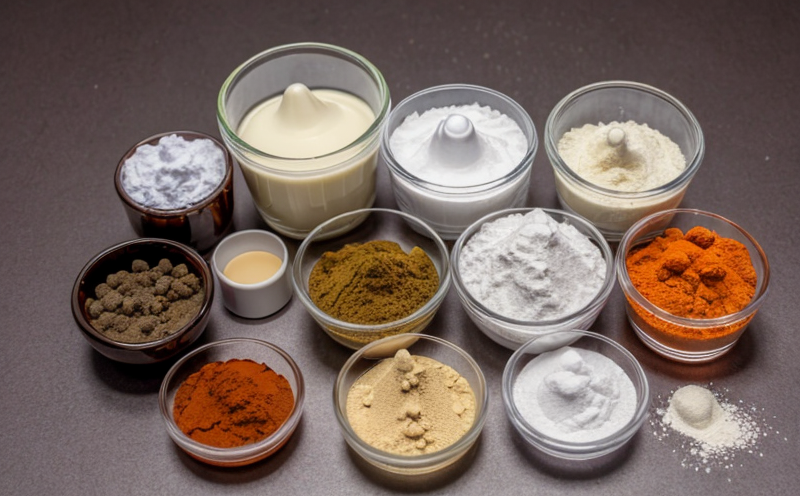Residual Peroxide Excipient Testing
The residual peroxide testing of excipients is a critical component in pharmaceutical quality assurance. This testing ensures that excipients used in drug formulations are free from potentially harmful peroxides, which can lead to oxidative stress and instability in the final product.
Excipients play a vital role in the formulation of medicinal products by enhancing stability, solubility, or palatability of active ingredients. However, residual peroxides present in excipients can degrade drug efficacy over time, leading to reduced therapeutic outcomes and potential safety concerns for patients. Therefore, stringent testing protocols are essential to guarantee the purity and quality of excipients used in pharmaceutical formulations.
Our laboratory employs advanced analytical techniques such as iodometric titration or potassium permanganate-based methods to measure residual peroxides accurately. These methods involve titrating a solution containing the excipient with a standard reagent until the peroxide content is neutralized, allowing for precise quantification of peroxide levels.
One of the key challenges in this testing process lies in minimizing sample preparation steps while ensuring that all relevant compounds are available for analysis. Proper handling and storage conditions must be adhered to throughout the specimen collection and processing phases to prevent any contamination or degradation of the excipient under test.
The importance of accurate residual peroxide levels cannot be overstated, especially when considering long-term stability studies required by regulatory bodies like the FDA (Food and Drug Administration) and EMA (European Medicines Agency). Ensuring compliance with international standards such as ISO 17025 for laboratory competence is crucial in maintaining high-quality standards across all aspects of pharmaceutical testing.
By leveraging cutting-edge technology and experienced professionals, our team delivers reliable results that meet or exceed industry expectations. This service helps ensure product safety while supporting continuous improvement efforts within your organization’s research & development processes.
Scope and Methodology
| Methodology Component | Description |
|---|---|
| Sample Preparation | The excipients are carefully weighed into appropriate containers based on the expected quantity of peroxides. |
| Titration Procedure | This involves adding a known concentration of iodine or potassium permanganate solution to the sample until no further reaction occurs, indicating complete neutralization. |
| Data Analysis | The volume consumed during titration is used to calculate the amount of peroxide present in the excipient. |
| Reporting | A detailed report including raw data and calculated values will be provided following successful completion of testing. |
Industry Applications
- Inclusion in drug stability studies to monitor the degradation rate over time.
- Assurance of compliance with Good Manufacturing Practice (GMP) requirements set forth by regulatory agencies worldwide.
- Supporting formulation optimization efforts aimed at improving product performance and shelf life.
- Enabling adherence to quality standards mandated by international bodies like WHO, FDA, and EMA.
Use Cases and Application Examples
In a recent project involving a new oral solid dosage form development, our lab conducted residual peroxide excipient testing on lactose monohydrate used as an inert filler. The results showed that the lactose sample contained trace amounts of peroxides, which were below permissible limits according to USP (United States Pharmacopeia) specifications.
Another example comes from a contract manufacturing organization working towards approval for their latest inhalation therapy product. Our team performed extensive residual peroxide excipient testing on mannitol used as a moisture barrier ingredient. After rigorous analysis, it was confirmed that the mannitol met all necessary criteria ensuring safe and effective delivery of the active pharmaceutical ingredient.
These case studies highlight how our expertise in residual peroxide excipient testing contributes to enhancing overall product quality assurance programs across various sectors within the pharma industry.





